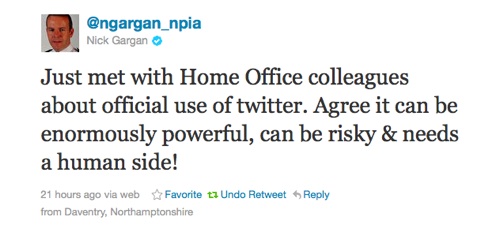UK cops charge alleged Anonymous hacker
A man has been charged by police investigating web attacks allegedly carried out by hacking collective Anonymous against firms deemed to have acted against the whistleblower website Wikileaks.
Scotland Yard named student Peter David Gibson, 22, of Castleton Road, Hartlepool, Cleveland as one of the individuals alleged to have waged DDoS attacks on PayPal, Amazon, Mastercard, Bank of America, PayPal and Visa in December 2010.
He has been charged with conspiracy to “do an unauthorised act in relation to a computer, with intent to impair the operation of any computer or prevent or hinder access to any program or data held in a computer or to impair the operation of any such program or the reliability of such data,” said the Met.
Those are actions that are contrary to Section 1(1) of the Criminal Law Act 1977, it added.
The Computer Misuse Act, which carries maximum prison sentences of 10 years, was not cited by the police.
Gibson is expected to appear at City of Westminster Magistrates’ Court on 7 September.
Detectives at the specialist computer-crime unit quizzed Gibson in April this year.
He was one of six people arrested in connection to a UK police probe into “Operation Avenge Assange”.
The five other UK-based men – aged, 15, 16, 19, 20 and 26 – were arrested, following coordinated police raids in the West Midlands, Northants, Herts, Surrey and London, under the Computer Misuse Act in January this year.
It is alleged that the individuals set off Distributed Denial of Service attacks using a modified piece of open source software known as the Low Orbit Ion Cannon.
The program was used to send a constant stream of data to targeted websites in an effort to shutter the sites.
In July this year federal law-enforcement personnel in the US arrested 16 people accused of carrying out computer crimes that damaged or breached protected systems. Fourteen of these suspects, from 10 states across the US, were alleged to have been involved in “Operation Avenge Assange”.
Anonymous’s assault against PayPal, MasterCard, Visa, Amazon, and others was mounted after those firms cut off services to WikiLeaks, following publication by the whistle-blower site of classified US diplomatic memos. ®
Article source: http://go.theregister.com/feed/www.theregister.co.uk/2011/08/25/cops_charge_alleged_hacker/



 Nick Helm with his award. Photo: DAVE/PA
Nick Helm with his award. Photo: DAVE/PA